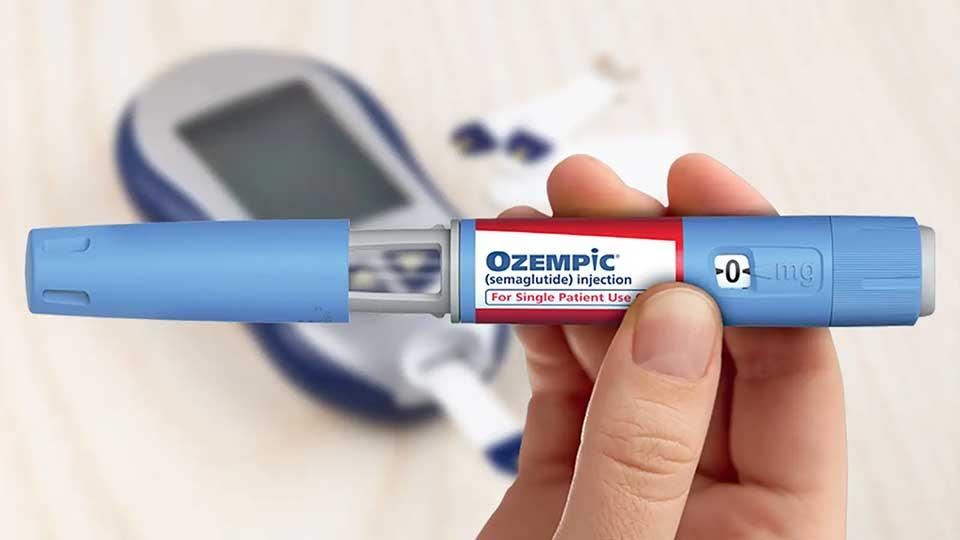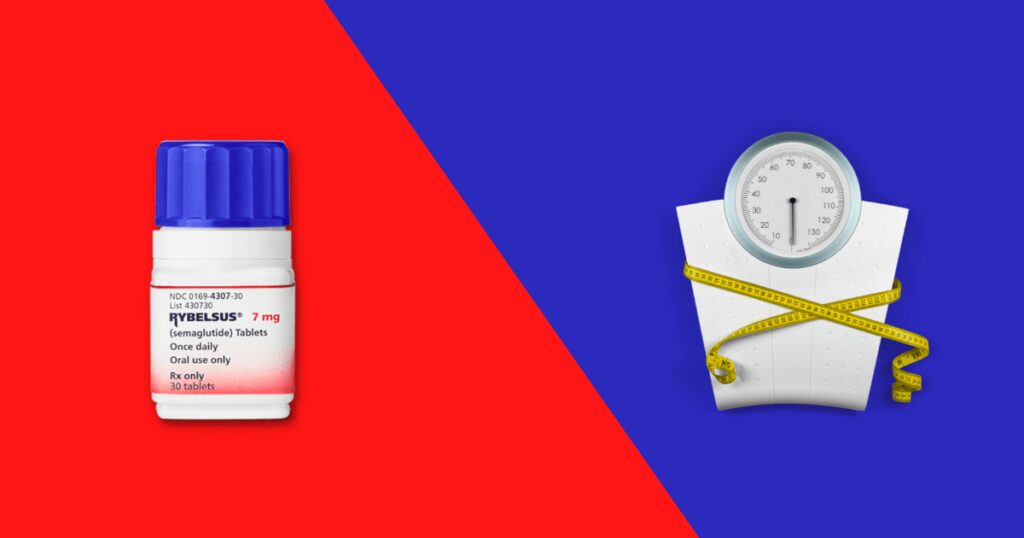
Semaglutide For Weight Loss: An Overview Of The Latest FDA-Approved Treatment
The US Food and Drug Administration recently approved semaglutide, a medicine that helps people lose weight. Semaglutide works by affecting the body’s natural hormones that control hunger and blood sugar. Studies show that it can help people lose a lot of weight – about 15% of their starting weight over 68 weeks – and also improve their heart health.
Additionally, it has been linked to improvements in cardiovascular risk factors and physical functioning. The approval of telehealth semaglutide expands treatment options for individuals seeking weight management solutions.
Individuals with type 1 diabetes should not use semaglutide. Furthermore, the FDA has authorized Wegovy, Ozempic, and Rybelus, distinct brands of semaglutide, for various medical conditions.
How Does Semaglutide Operate?

As a glucagon-like peptide-1 (GLP-1) agonist, semaglutide functions to reduce elevated blood sugar levels by increasing insulin release, decreasing glucagon release, and delaying gastric emptying; physicians prescribe it more often. Additionally, semaglutide regulates appetite, leading to a reduction in food cravings.
Different Brands Of Semaglutide
Semaglutide is available in various forms and serves different purposes, depending on the brand:
1. Wegovy
The subcutaneous injection form of semaglutide is designated for weight management in a specific patient population and is administered once a week.
2. Ozempic
The subcutaneous injection form of Ozempic is used with diet and exercise to reduce blood sugar levels in individuals with type 2 diabetes. Additionally, it is used to mitigate the risk of significant cardiovascular events, such as heart attacks or strokes, in diabetic patients with existing cardiovascular disease. Ozempic is administered as a weekly subcutaneous injection.
3. Rybelus
The tablet form of semaglutide is prescribed to individuals with type 2 diabetes to lower their blood sugar levels. It is administered orally once a day in conjunction with diet and exercise.
Ozempic Suggested Dose

- To initiate treatment with Ozempic, a 0.25 mg subcutaneous injection (injection beneath the skin) should be administered once a week for four weeks. It’s important to note that the 0.25 mg dosage is intended solely for treatment initiation and is inadequate for glycemic control.
- Following four weeks of treatment with the 0.25 mg dosage, the dose should be increased to 0.5 mg once per week.
- If further glycemic control is required after a minimum of four weeks on the 0.5 mg dosage, the dose may be raised to 1 mg once per week.
- If additional glycemic control is deemed necessary after a minimum of four weeks on the 1 mg dosage, the dose may be raised to 2 mg once per week. However, it is required to note that the extreme suggested amount is 2 mg once per week.
- Ozempic should be administered once per week on the same day every week, with or without meals, at any time.
- The weekly administration day of Ozempic can be altered if required if there is a minimum gap of two days (i.e., greater than 48 hours) between two doses.
- If a dose of Ozempic is missed, it should be processed as soon as feasible, within five days following the missed dose. However, if more than five days have gone, the skipped dose should be capered, and the subsequent amount should be processed on the typically scheduled day. After either scenario, patients can resume their regular weekly dosing schedule.
Wegovy Advised Prescription
To reduce gastrointestinal adverse reactions, start Wegovy treatment with a subcutaneous injection of 0.25 mg once per week, and follow the dose escalation schedule outlined below.
- During the first four weeks, the recommended dosage of Wegovy is 0.25 mg per week.
- From week 5 to week 8, the recommended dosage of Wegovy is increased to 0.5 mg per week.
- During weeks 9 to 12, the recommended dosage of Wegovy is further increased to 1 mg per week.
- From week 13 to week 16, the recommended dosage of Wegovy is increased to 1.7 mg per week.
- Starting from week 17 and onwards, the recommended dosage of Wegovy is 2.4 mg per week.
Consider postponing dose escalation for four weeks if patients experience intolerance during dose escalation. The recommended maintenance dose for Wegovy is 2.4 mg, administered subcutaneously once weekly. If patients do not tolerate the maintenance dose, the dosage can be temporarily reduced to 1.7 mg once weekly for four weeks.
After four weeks, increase the dosage to the maintenance dose of 2.4 mg once weekly. Discontinue Wegovy if patients cannot tolerate the 2.4 mg dose. For patients with type 2 diabetes, monitor their blood glucose levels before starting and during treatment with Wegovy.
Rybelsus Recommended Dosage

If you are new to this treatment, try following the recommended usage below to ensure the therapy properly fits your health conditions.
- Rybelsus treatment should be initiated with a once-daily dose of 3 mg for the first 30 days. It is important to note that the 3 mg dose is only intended for treatment initiation and is inadequate for glycemic control.
- Once the patient has been on the 3 mg dose of Rybelsus for 30 days, the amount should be improved to 7 mg once every day.
- If further glycemic control is required after a minimum of 30 days on the 7 mg dose, the dose can be increased to 14 mg once daily.
- It is not suggested to consider two 7 mg Rybelsus tablets to attain a 14 mg dose.
- If a dose is skipped, the missed dose should not be taken, and the next dose should be taken on the following day.
Conclusion
Semaglutide is a promising FDA-approved treatment for weight deficit in grownups who are overweight or have obesity. As a GLP-1 agonist, semaglutide helps to reduce hunger and increase satiety, leading to decreased food intake and weight loss. With its weekly subcutaneous administration and favorable safety and efficacy profile, semaglutide provides a new option for individuals struggling with weight management.
However, as with any medication, it is essential to discuss with a healthcare provider whether semaglutide is the right choice and to closely monitor for any future side effects or connections with other prescriptions.
